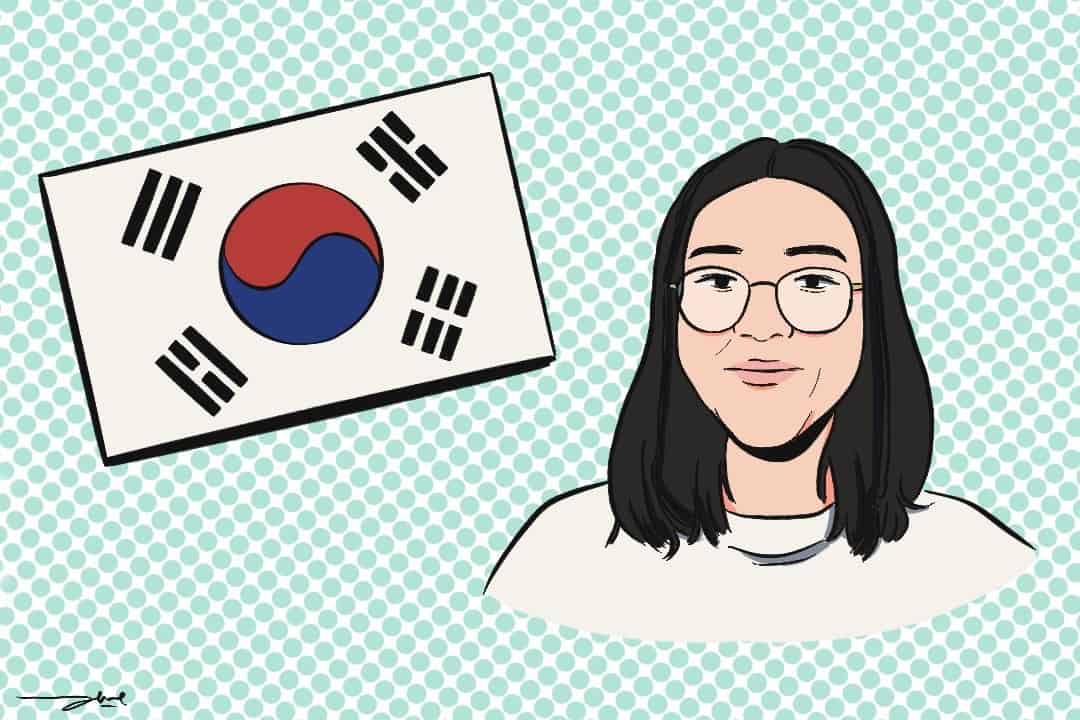My first language is Korean. I speak it at home, and I know how to read and write in it. But when watching the news in Korea with my relatives, about 40 per cent of it flies over my head, and I’m left looking at pictures and surreptitiously googling translations away from the curious eyes of my fully fluent cousins. I guiltily turn on subtitles when I watch shows or movies in Korean.
As a recovering Korean school dropout, I don’t speak Korean easily, but despite this, I always reach for it first when I want to express frustration, anger, and grief. I translate in front of my therapist, interpreting in real time for myself. I find English to be such a flimsy and nebulous language, and communicating so-called ‘negative emotions’ in English feels almost comically flat and one-dimensional.
This is one of the unique vexations of the “third culture kid,” a term credited to American sociologist Ruth Useem, who defined this figure as a child who grows up in a culture different from the ones their parents grew up in. Telling my friends about grief and anger is tiring and rings hollow because of my constant translation. Talking to my family members in Korean doesn’t cut it either because my Korean lags and stumbles.
It does not help that the more I go back to Korea, the more graves I visit. As I grow older and many of my extended family members reach their 70s and 80s, I have become more fluent in the language of grieving. There are rules, layers of etiquette, and a ceremonial aspect that I cannot help but honour. I have never grieved in English. Thus, grief in Korean feels heftier, but there is still the strange frustration of knowing all the right words in Korean but being unable to translate them into English, my dominant language. I can’t reach the words I need to express my grief. It feels like I am stuck by myself, holding this big emotion that does not want to be held and cannot be articulated.
Even worse, I speak a terrible Frankenstein dialect of Korean that mixes my mother’s Seoul accent and North Korean figures of speech from her mother and grandmother with my father’s countryside twang. This odd mix is topped off with slightly rounded-out vowels characteristic of English speakers and lapses in a formal language that — if my actual accent hadn’t done it already — would make it glaringly obvious that I’m not ‘from here’. Rather, I’m just a ‘gyopo’: a pejorative for diaspora Koreans that implies we’ve lost touch with our roots. It’s one of the many labels family members give me.
The result is a grey area: speaking in Korean about rage and grief is frustratingly slow, as my accent and limited vocabulary hinder me, yet translating into English feels lacking and weak. I don’t speak Korean well enough to see a therapist in Korean, but on the other hand, my vague circling in English of the true meaning I want to get at drives me a little bit insane. I can’t help but think, “This would be so much faster and so much more accurate in Korean!” I’m not just sad that my grandfather died — I’m angry that he was alone, and it’s unfair that my mother didn’t get to see her dad before he passed, and it feels hollow and twisted. In Korean, these feelings are not discrete: they happen all at once.
For example, how do you begin to describe the expression ‘eoieopda’ (어이없다) in English anyway? Maybe it’s when you’re off-kilter because the situation at hand is plain dumbfounding but with a tinge of unfairness and disbelief. You can use it when someone acts rude out of the blue or when your grandfather’s condition declines sharply overnight. What about ‘jeong’ (정)? I think it’s remembering people’s birthdays even if they mistreated you, or texting your friend a picture of something that reminds you of them. It’s attachment but more than that. You can have jeong for people, objects, places, and situations. In the case of grieving, jeong is love with nowhere to go.
Luckily, I know the secret to untangling my emotions that get lost in translation: I’ll grieve as much as I want, in as strange a cocktail of languages as I want, and then I’ll write about my experience over and over until I’m satisfied. But until I’m done, please don’t say anything if you see me turning on the subtitles for a Korean movie. It’s a work in progress.


